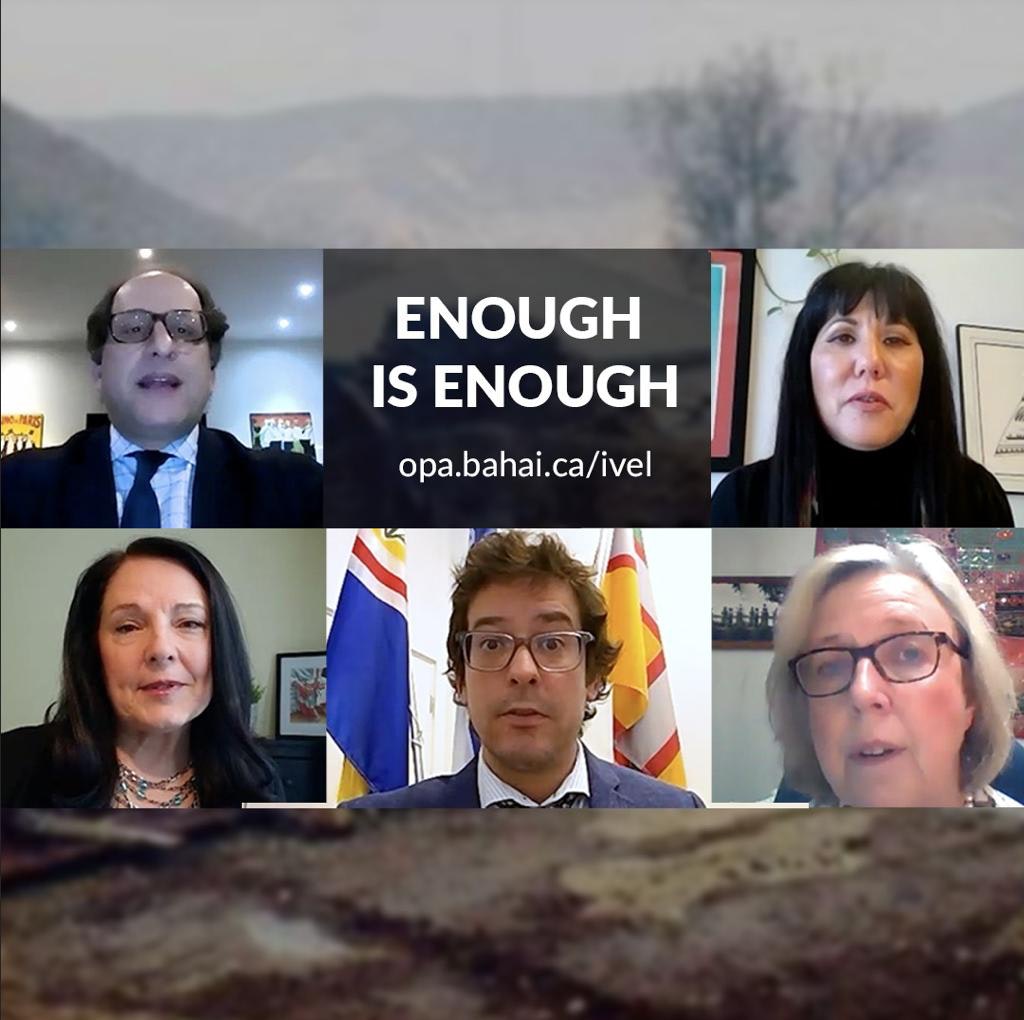Source: news.bahai.ca

The court-ordered confiscation of properties from 27 Baha’i families in the farming village of Ivel, Iran, has been answered by wide-reaching solidarity from all corners of Canadian society. This outpouring of support has been part of a global outcry of protest against the court decisions, which express clear religious prejudice.
“I think that what was so outrageous here was the judicial complicity,” said Hon. Irwin Cotler, former Attorney-General of Canada.
“I might add that in this legal process, the Baha’is’ counsel were not allowed to see any evidence against them, not allowed to adduce any evidence, not permitted to make any representations. In other words, [the ruling was] not only an abandonment of due process, [it] adds to the entire shocking legal and judicial complicity in this,” Prof. Cotler continued.
Prof. Cotler was a signatory to an open letter addressed to Chief Justice Ebrahim Raisi, along with former Prime Minister, Rt. Hon. Brian Mulroney, and other former attorneys-general, retired Supreme Court justices, and other legal luminaries. The open letter was featured in media coverage by the Globe and Mail, the CBC, Radio-Canada International, and the Winnipeg Free Press.
Canadian Members of Parliament added their voices as well. MPs from all five political parties recorded a video in which they called on Iran to “return the properties of Baha’is and respect their human rights as citizens of Iran.”
The Iranian court decisions have been widely condemned by experts in Iranian law and Shariah law. The Canadian Council of Imams, which is a collective leadership of Imams in Canada, issued a statement that the ruling “is not in conformity with Shariah”. The Council noted, “In Islam, all properties and [the] dignity of every human [being] are to be preserved and protected.”
Hossein Raeesi, a human rights lawyer trained in Iran and an adjunct professor in the Department of Law and Legal Research at Carleton University in Canada, prepared a legal analysis of the court proceedings. He concluded, “there is no doubt that the wrong practices of the special courts and the disregard for the due process of law and the religious principles of justice have led to the violation of the rights of non-Muslim citizens [Baha’is].”
The outcry against the confiscation of Baha’i-owned farms has also been joined by a number of agricultural policy experts from around the world, including Canada. In their open letter to Iran’s Chief Justice Ebrahim Raisi and acting Minister of Agriculture Abbas Keshavarz, they said they are speaking out because they “are concerned about the plight of smallholder farmers throughout the world who often face injustice from arbitrary authority.”
“We write as fellow agriculturists,” they continued, “to bring attention to this instance of persecution and urge the Iranian authorities to overturn their decision with regard to the farmers of Ivel.”
Others have also expressed their solidarity through social media. A two-day campaign on Twitter sought to engage people in sharing their concern through the use of two hashtags, #IvelBahais and #ItsTheirLand. Tens of thousands around the world participated, reaching several million people.
Vahid Yucesoy, a PhD candidate at the University of Montreal, tweeted about the “appalling treatment that the Baha’is of Iran have been subjected to. Not many people in the world are aware of the apartheid-like conditions they face. Iran is their land too.”
The Canadian government has said that it is “concerned by the recent court ruling in Iran that land of the Bahá’ís of Ivel will be seized due to their religious beliefs. We urge the Iranian authorities to eliminate all forms of discrimination on the basis of religion or belief.” Canada also raised the issue of unrecognized religious minorities, which includes Baha’is, in a statement regarding Iran at the Human Rights Council.
March 10, 2021 3:06 pm
The muslim brothers should be the first to decry these predations if they wish to abide by the Rasool’s command “Unto you your religion and unto me mine. Let there be no compulsion in religion…”